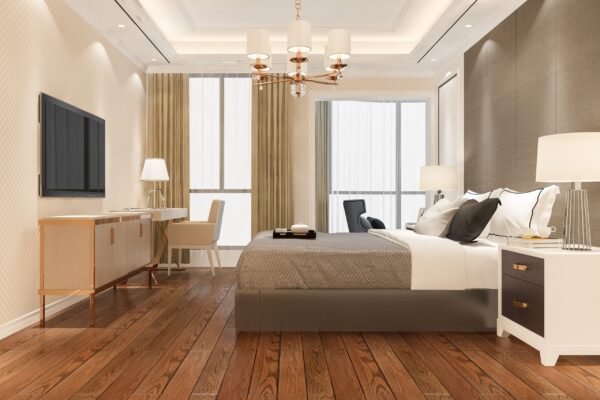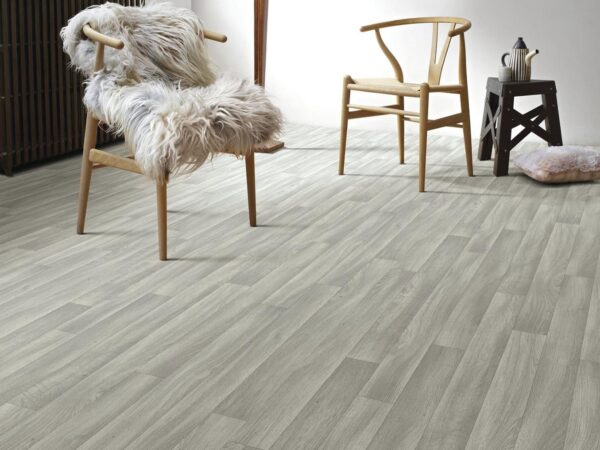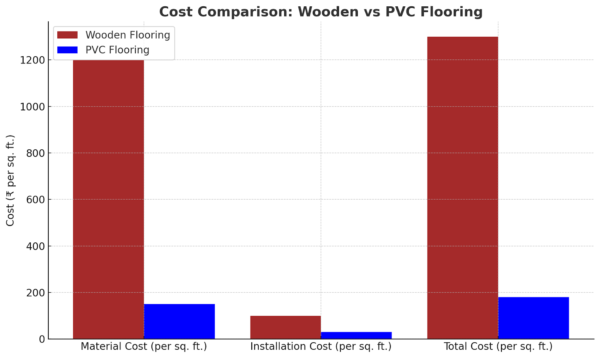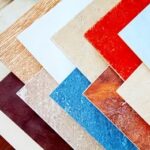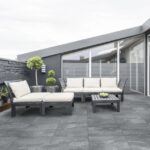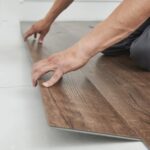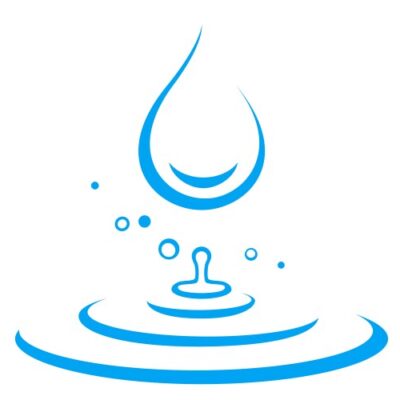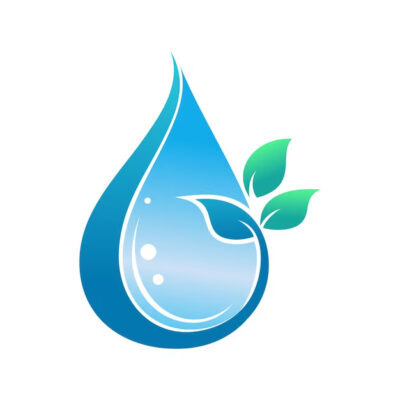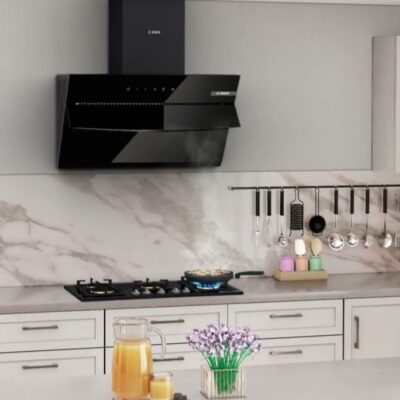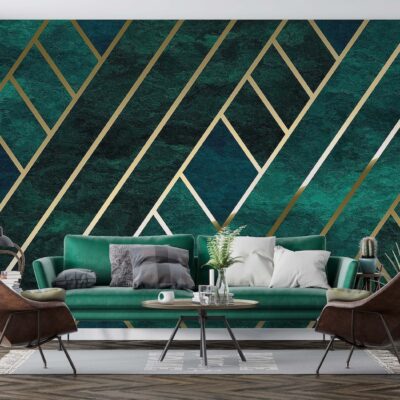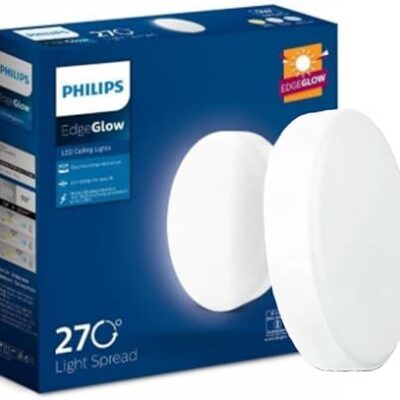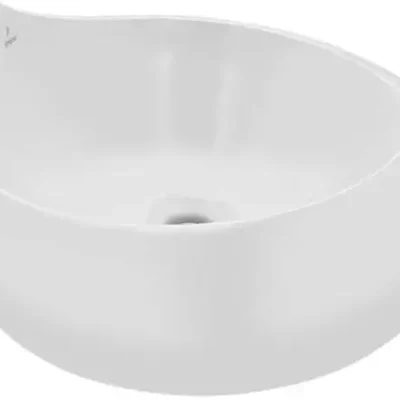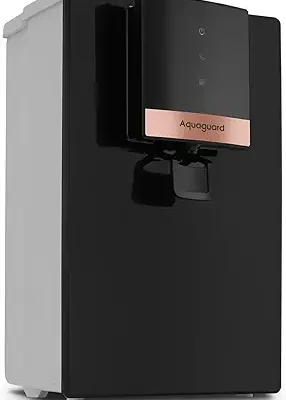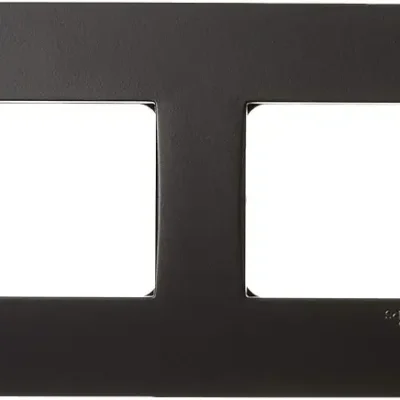Flooring forms the basic element that one walks upon, places furniture on, and essentially sets the base for everything else; thus, it supports much of shaping space aesthetics and function.
Choosing the right flooring can sometimes feel like one of the biggest decisions you have ever made. Whether it is a new house, an old house renovation, or just refreshing a room, our guide will help make this decision much easier between two popular alternatives: wooden and PVC flooring.
All of these alternatives have their own advantages and disadvantages, and the right choice for you will depend upon various factors, including your budget, climate, and lifestyle.
What is Wooden Flooring?
Let’s start with some basics.
Wooden flooring is considered the gold standard in flooring. As it provides a classic, warm, and elegant look, it proves to be in high demand among homebuyers who want to spread warmth and character in their interior space.
Authentic wood flooring can be prepared from many different species, among which are oak, maple, cherry, walnut, and some quite exotics such as Brazilian cherry or teak.
It comes in a variety of forms, including solid hardwood, engineered wood, and laminate. Organic textures and deep tones make it one of the favorite flooring materials of people who appreciate traditional, rustic looks.
Go for Wooden Flooring If:
If you’re someone who values luxury, natural beauty, and a smart long-term investment, hardwood flooring is a fantastic choice for your living room, bedroom, or study. These areas, being free from water exposure, are good for showing the timeless elegance of wood.
Beyond their rich, warm aesthetic, hardwood floors are an eco-friendly option, especially when sourced responsibly. While they do require regular upkeep to maintain their charm, the effort is worth it for a material that only gets better with age.
Pros of Wooden Flooring
Aesthetic Appeal
Wooden flooring looks good; that is no surprise. It has a premium, luxurious finish that adds to the value of your home. Their natural grain patterns, rich colours, and warm tones can create a warn and welcoming atmosphere in any room.
Durability
Maintaining wooden floors is a little difficult as compared to PVC, but when maintained well, hardwood can last for decades. Over time, they can develop a beautiful patina that adds to their charm. When they start to show signs of wear and tear, they can be sanded and refinished to restore their original beauty.
Wooden flooring is also resistant to heavy furniture and foot traffic, depending on wood type.
Eco-Friendly
It’s a sustainable option. Made from natural, renewable resources (especially when FSC-certified), these tend to be eco-friendly. They are biodegradable and have low environmental impact during disposal.
Comfort
Feels warmer and softer underfoot, creating a cozy atmosphere. They also offer more customization options if you want some change once in a while. They can be sanded and refinished multiple times to restore appearance or change the stain color.
Cons of Wooden Flooring
Cost
Solid wood is one of the most expensive flooring options available, and even engineered hardwood, while generally more affordable, can still be pricey compared to other materials like laminate or vinyl.
Material costs range from ₹1000–₹3000 per sq. ft., depending on the type of wood. Installation is labor-intensive and expensive and might cost an additional 100–300 per sq. ft.
Maintenance
Wooden floors are somewhat prone to scratches and moisture damage and require regular upkeep like polishing. They are not an ideal option for bathrooms, kitchens, or basements.
Installation
If you want DIY, this is not the one for you. It can be labor-intensive, requiring professional expertise. Wooden flooring also requires regular cleaning, polishing, and occasional refinishing.
What is PVC Flooring?
PVC (Polyvinyl Chloride) has become the long-sought choice of homeowners. Today, studies reveal an increase in its application in residential and commercial settings.
Commonly referred to as vinyl flooring, it is an affordable and flexible synthetic flooring product with an assortment of styles. It is designed to make use of the look of natural materials like wood or stone.
It comes in several types, like sheet vinyl, vinyl tiles, and luxury vinyl planks (LVP).
Opt for PVC Flooring If:
PVC flooring is a great option for many homes. It is affordable and gives a stylish look without costing as much as natural materials. Unlike hardwood, vinyl won’t warp, swell, or buckle when exposed to water, which makes it a low-maintenance option for rooms like kitchens, bathrooms, and basements.
Plus, PVC flooring is easy to install, saving both time and effort. For a budget-friendly and practical flooring choice, PVC is hard to beat.
Pros of PVC Flooring
Affordability
PVC flooring is one of the most budget-friendly flooring options on the market. The cost of vinyl can vary depending on the quality and style you choose, but it is generally much less expensive than hardwood or even laminate.
It generally costs between ₹100–₹250 per square foot, making it ideal for homeowners on a budget. The installation is quick and easy, reducing labor costs. It often costs ₹20–₹50 per square foot to install PVC flooring.
Waterproof and Moisture-Resistant
PVC flooring is completely waterproof, making it perfect for areas more prone to moisture, such as bathrooms, kitchens, basements, and laundry rooms. Unlike wood, it doesn’t warp, swell, or degrade when exposed to water.
It’s easy to clean with just regular sweeping and mopping, and it resists stains and discoloration.
Durability
High-quality PVC flooring can withstand heavy foot traffic, pets, and furniture without showing signs of wear. Additionally, PVC floors last between 10–20 years, which is shorter than wood but still a long enough period for many homeowners.
Versatility in Design
PVC flooring comes in a wide range of designs, including patterns that mimic wood, stone, and ceramic tiles. It offers you flexibility in interior design, allowing you to create a floor that looks luxurious without the cost of real wood or stone.
They are available in both traditional and modern looks, with options for different textures, colors, and finishes.
Cons of PVC Flooring
Lifespan
While durable, PVC flooring lasts about 10-20 years, which is shorter than wooden floors, especially in high-traffic areas. Vinyl flooring is resistant to scratches and dents, but it can still be damaged by heavy furniture or sharp objects. And unlike hardwood, vinyl cannot be refinished, so if it becomes worn or damaged, it will need to be replaced.
Environmental Impact
PVC is made from non-renewable resources, and the production process can release harmful chemicals. Unlike wood, PVC is not biodegradable, which means it doesn’t break down naturally when disposed of.
Less Premium Feel
While PVC can mimic wood, it may not feel as high-end as natural materials. It may not have the same prestige as genuine hardwood.
A Comparison Table – Wooden vs PVC Flooring
| Aspect | Wooden Flooring | PVC Flooring |
|---|---|---|
| Material | Natural wood | Synthetic (Polyvinyl Chloride) |
| Cost | ₹700–₹1,500/sq. ft. (including installation) | ₹50–₹300/sq. ft. (budget-friendly) |
| Durability | 20+ years (with proper maintenance) | 10–20 years (depends on quality) |
| Aesthetic Appeal | Luxurious, authentic natural look | Variety of designs, but less natural |
| Water Resistance | Limited | High (ideal for wet areas) |
| Maintenance | Requires regular upkeep | Low maintenance |
| Eco-Friendliness | High (if FSC-certified) | Low |
| Installation | Time-consuming, professional needed | Quick, DIY-friendly |
Cost Breakdown: Wooden vs PVC Flooring
The cost of flooring can vary depending on material quality, brand, and labor. Here’s a closer look:
Wooden Flooring
Solid Wood: ₹1,200–₹1,500 per sq. ft.
Engineered Wood: ₹800–₹1,200 per sq. ft.
Laminate Wood: ₹700–₹900 per sq. ft.
Installation Cost: ₹50–₹150 per sq. ft.
PVC Flooring
Basic Vinyl Sheets: ₹50–₹150 per sq. ft.
Luxury Vinyl Planks/Tiles: ₹150–₹300 per sq. ft.
Installation Cost: ₹20–₹50 per sq. ft. (or DIY)
Final Thoughts
Ultimately, the best flooring choice for your home will depend on your own unique needs and preferences. Consider factors like your budget, climate, maintenance preferences, and lifestyle when making your decision.
Remember, investing in quality flooring is worth it in the long run, as it can enhance the beauty and value of your home for years to come.

